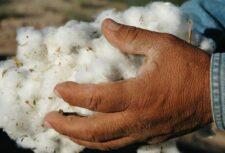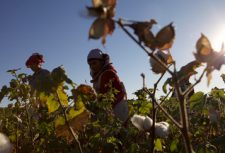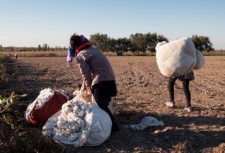Disclaimer: This article is more than 12 years old, and may not include the most up-to-date information or statistics. Please verify information with more recent sources as needed, and if you have any questions contact our Press Office.
10 June 2011
To mark World Day Against Child Labour (Sunday 12 June) human rights groups have called for an international investigation to expose the use of forced child labour in Uzbekistan’s cotton industry.
The investigation was called for at the International Labour Organisation’s (ILO) annual conference in Geneva by Anti-Slavery International and International Labor Rights Forum. A high-level ILO monitoring mission would be the necessary first step in providing an independent credible assessment of the problem.
Each autumn, schools are closed down and hundreds of thousands of children are forced out of their classrooms and into the fields to pick the cotton harvest in Uzbekistan, the world’s third largest exporter of cotton.
While Uzbekistan officially denies the use of forced child labour in its country, and has so far failed to invite an ILO monitoring mission, officials did pledge in Geneva on Monday 6 June to have a government controlled trade union act as an official monitor.
The ILO’s Committee on Application of Standards, in a decision issued on Wednesday 8 June after a hearing earlier in this week, questioned the credibility of Uzbekistan’s proposal and also called for the government to accept a high level ILO monitoring mission.
Speaking in Geneva, Brian Campbell, Policy Director at International Labor Rights Forum, said: “Uzbekistan’s intention to monitor its own harvest for a problem it denies is ludicrous. Such monitoring cannot be considered credible in a country where independent civil society is controlled and critical media muzzled. If the government has nothing to hide then it should allow the ILO access during the harvest.”
The European Union is a major destination for Uzbek cotton. The EU currently grants preferential trading access to exports from Uzbekistan under a scheme to support developing economies. However, this can be suspended in cases of serious human rights violations.
Joanna Ewart-James, Anti-Slavery International’s Supply Chain Co-ordinator, said: “Unless drastic action is taken, this autumn the government of Uzbekistan will force hundreds of thousands of children to abandon their education and pick cotton once again. Until an official investigation by an independent monitor is able to prove that the use of forced child labour has ended then the EU must revoke trade preferences that could be argued are rewarding Uzbekistan for committing human rights abuses.”





